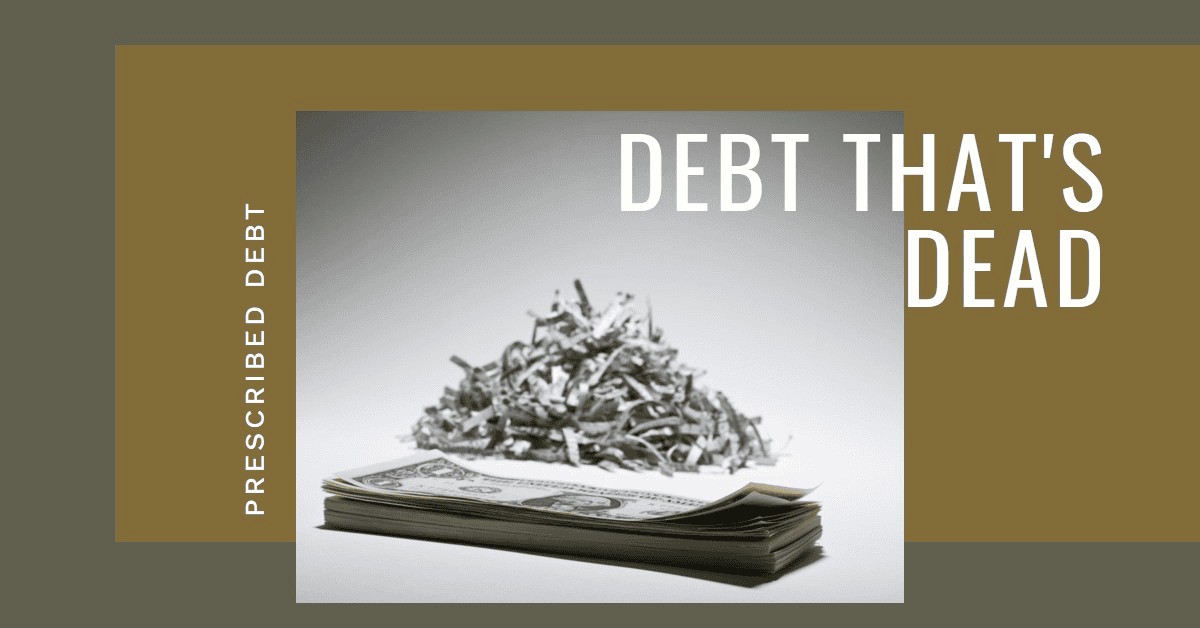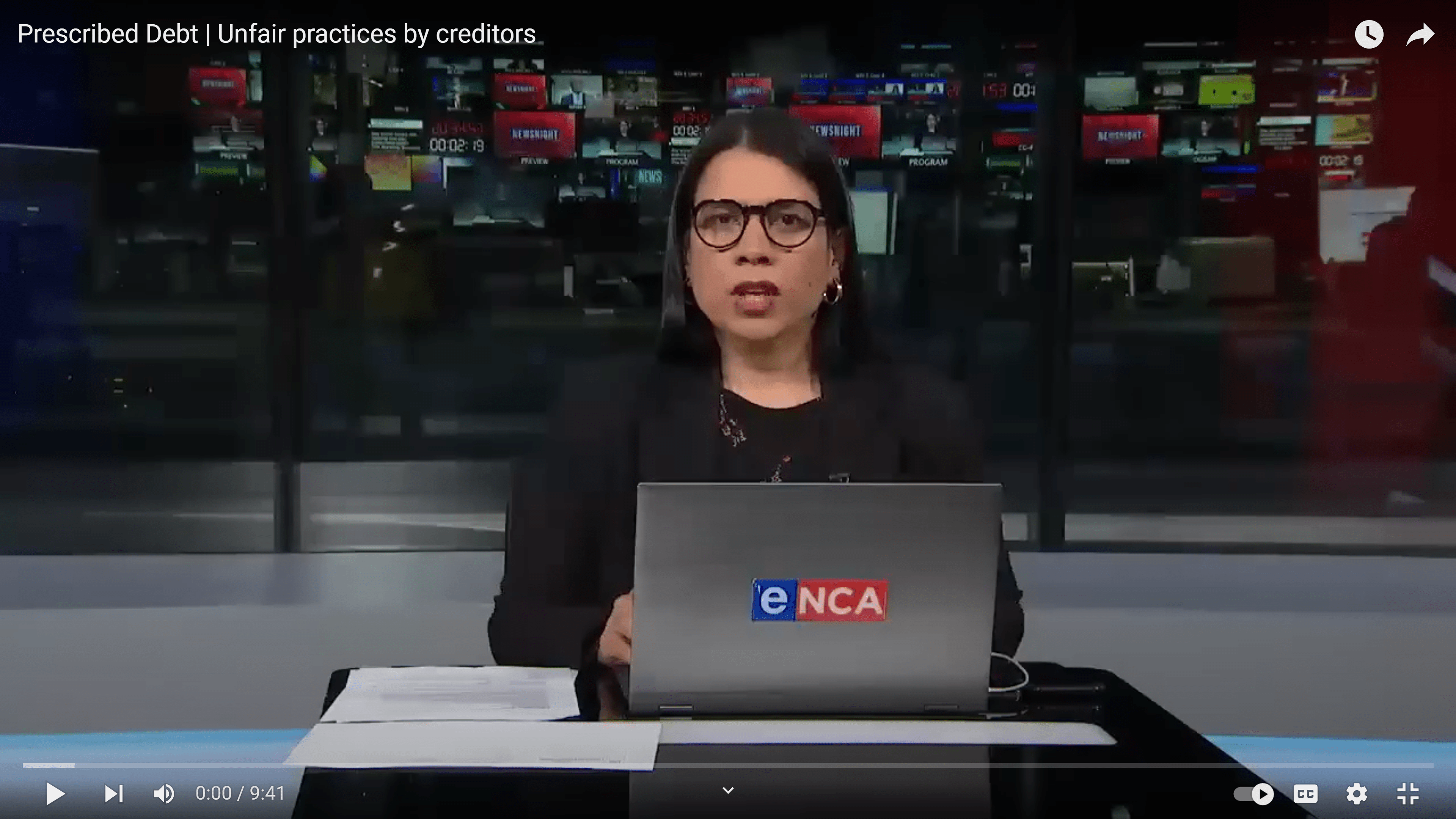
Prescribed Debt
Prescribed debt is mostly not explained to consumers.
Debt collectors and sometimes,
credit providers, do their best to collect payments on arrear
loans or prescribed accounts without explaining that the debt does not have to be paid anymore. Debt can be a significant burden, and understanding
your rights and options is crucial for managing financial health.This article explores what
prescribed debt is, how to determine if your debts have prescribed, who you can reach out to for assistance, and alternative options if your debts have not prescribed.
What is Prescribed Debt
Prescribed debt refers to old debts that have not been acknowledged, paid, or claimed within a specified period, making them legally unenforceable. In South Africa, the Prescription Act determines the time frames for different types of debts to prescribe.
Generally, debts prescribe after three years, but there are exceptions. For example, mortgage bonds and judgment debts have longer prescription periods of 30 years.
Prescribed debt means that if a creditor does not take action to recover the debt within the prescribed period, they lose the legal right to enforce it.
This can be a significant relief for consumers who have old, lingering debts. However, it’s important to understand the specific conditions under which debt becomes prescribed.
How do I Know if My Debts Have Prescribed?
Determining whether your debts have prescribed involves a few key factors:
- Last Payment Date: The most straightforward way to check if a debt has prescribed is to look at the date of the last payment. If you haven’t made a payment in over three years, the debt might have prescribed. However, it’s crucial to note that this period can restart if you make any payment or acknowledge the debt.
- Acknowledgment of Debt: Any form of acknowledgment, whether written or verbal, can reset the prescription period. This means that if you’ve communicated with your creditor and acknowledged the debt, even informally, the three-year period starts over.
- Legal Action: If the creditor has not taken legal action to claim the debt within the prescribed period, the debt might be considered prescribed. Legal action includes issuing summons, or any other court-related activities aimed at recovering the debt.
To accurately determine if your debts have prescribed, it’s advisable to keep thorough records of all communications and transactions related to your debts. If you suspect that a debt has prescribed, you can refuse to pay it, but it’s often best to seek professional advice to ensure you are within your rights.
Who Can I Reach Out To?
If you believe that your debts have prescribed or if you need help managing your debt, several professionals and organizations can help:
- Debt Counsellors: Registered debt counsellors can offer guidance on whether your debts have prescribed and advise on the best course of action. They can also assist with negotiating with creditors and restructuring your debts if necessary. Debt counsellors are trained to help you understand your rights and options and can be a valuable resource in managing your financial situation.
- Legal Advisors: Attorneys who specialize in consumer law can provide detailed legal advice and help you navigate the complexities of prescribed debt. They can represent you in court if needed and ensure that your rights are protected throughout the process.
- Credit Bureaus: Contacting credit bureaus can help you obtain a comprehensive report of your debts and their status. This can be useful in verifying if any debts have prescribed and understanding your overall financial picture.
- National Credit Regulator (NCR): The NCR can provide information and resources about your rights and the prescription of debts. They oversee the credit industry and can offer guidance on various issues related to debt and credit.
- The Banking Ombudsman: The Banking Service Ombudsman is an independent and impartial official who resolves disputes between consumers and their banks. Their role is essential for maintaining trust and fairness within the banking industry. By providing unbiased resolutions, they help ensure that banks adhere to fair practices and regulatory standards.
For more, have a look at the following interview by ENCA

If My Debts Are Not Prescribed, Could Debt Review Be an Option?
If your debts have not prescribed, debt review might be a viable alternative to manage your financial obligations. Debt review is a process designed to help over-indebted consumers by restructuring their debt repayments into more manageable amounts.
Benefits of Debt Review
- Legal Protection: Once under debt review, creditors cannot take legal action against you for the debts included in the review. This provides significant peace of mind and allows you to focus on repaying your debts without the constant threat of legal action.
- Affordable Repayments: Debt counsellors negotiate with your creditors to reduce monthly payments, making them more affordable. This ensures that you can meet your debt obligations without sacrificing other essential expenses.
- Financial Stability: Debt review helps you manage your finances better, preventing further debt accumulation. By providing a structured repayment plan, it helps you regain control over your financial situation and work towards becoming debt-free.
Debt Review Process
- Assessment: The first step in the debt review process is an assessment by a debt counsellor. They will evaluate your financial situation, including your income, expenses, and debts, to determine if you qualify for debt review.
- Negotiation: If you qualify, the debt counsellor will negotiate with your creditors to agree on new repayment terms. This typically involves extending the repayment period and reducing monthly payments to an affordable level.
- Court Approval: Once an agreement is reached, the restructured payment plan is submitted to the court for approval. This makes the plan legally binding and ensures that all parties adhere to the agreed terms.
- Repayment: Under the new plan, you make regular, reduced payments until all included debts are settled. The debt counsellor will monitor your progress and provide support throughout the repayment period.
Debt review can be a lifeline for those struggling with debt repayment. It offers a structured and legally protected way to manage and eventually pay off your debts, providing much-needed relief and financial stability.
Key Takeaways:
Understanding prescribed debt and your options for managing debt is crucial for financial health. Whether your debts have prescribed, or you need assistance with debt review, Sandton Debt Counselling can help. By taking proactive steps and seeking the right advice, you can regain control of your financial situation and work towards a debt-free future.

